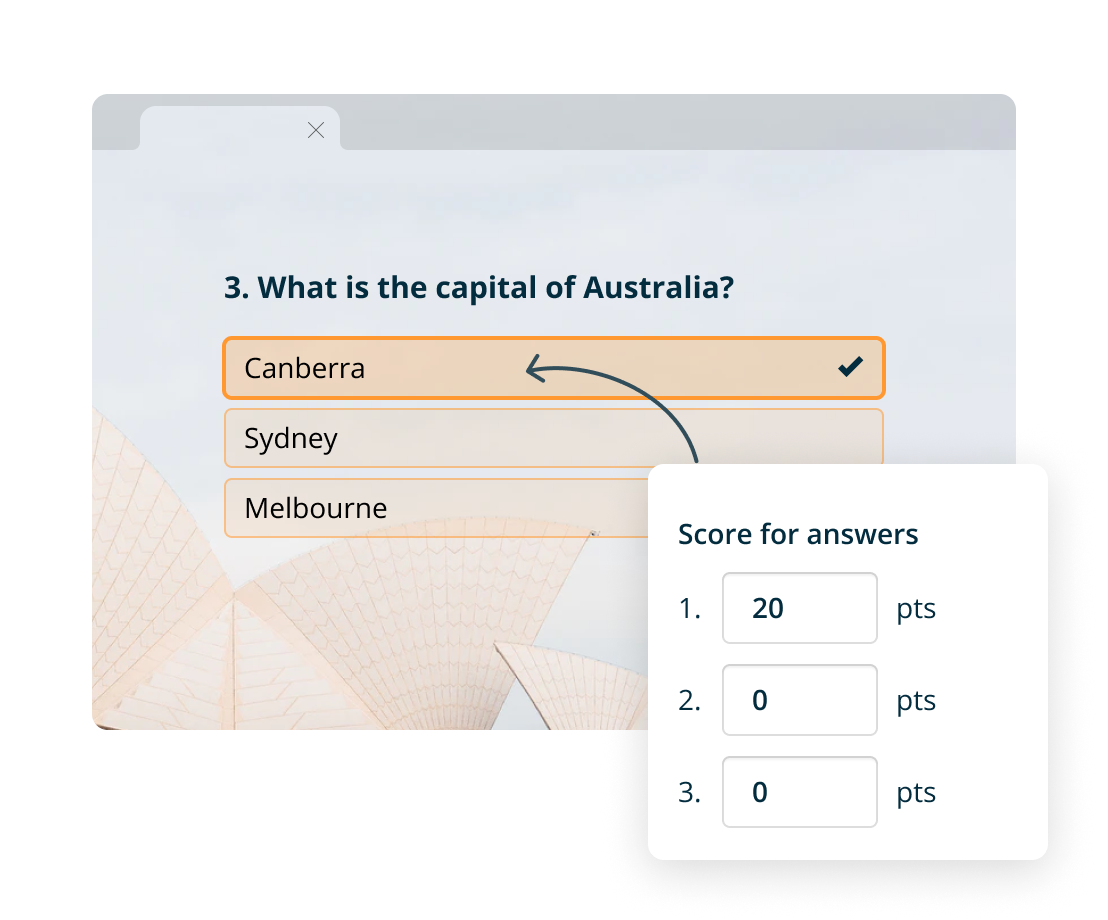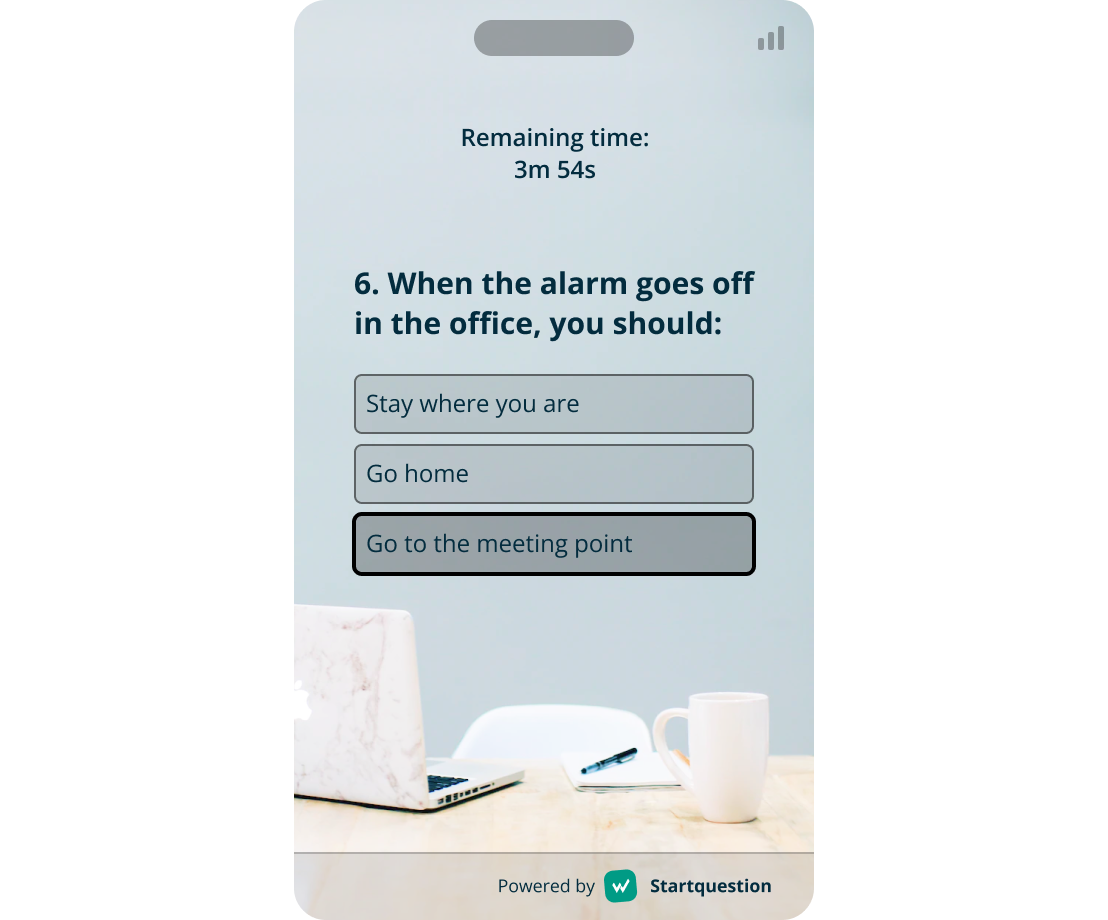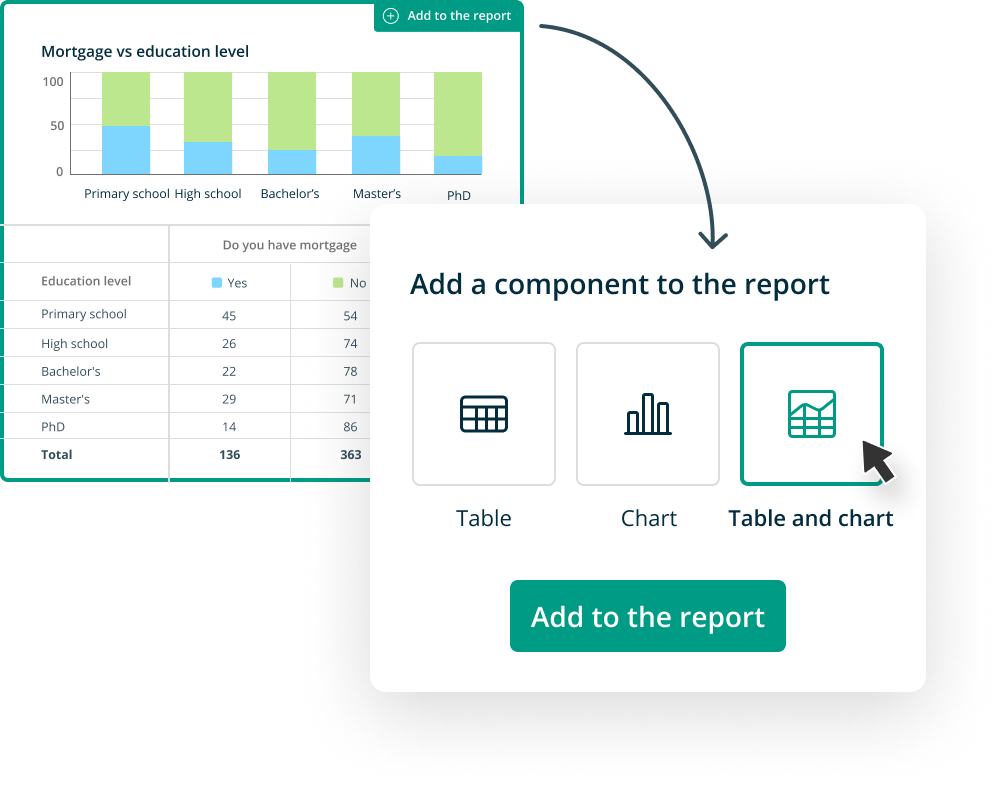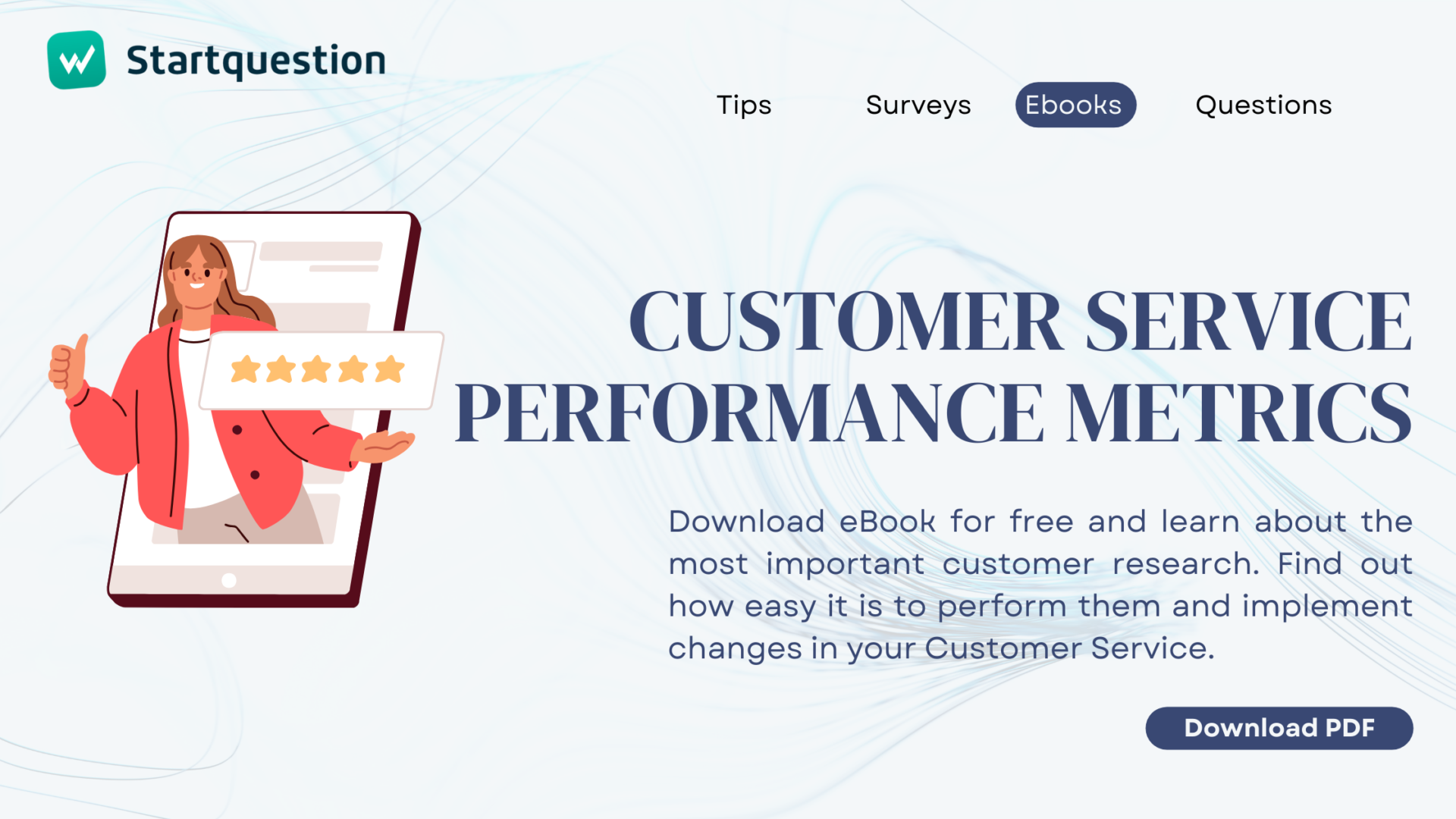As a hiring manager or HR specialist, you know that identifying and evaluating candidates’ and employees’ knowledge, skills, and abilities is critical to managing human capital. However, conducting a comprehensive skills assessment can be challenging, especially when measuring these intangible qualities. That’s why pre-employment tests and other assessment tools are crucial in ensuring you have the right people in the right roles.
Do you like the hilarious science fiction book series “Hitchhiker’s Guide to the Galaxy?”
I love it. And today, I would like to take you for a short ride through the galaxy of pre-employment assessments and employee testing. However, instead of exotic planets, I will reveal the business opportunities for your organization hidden in two of the most critical HR galaxies of skills testing.
Ready? Fasten your seatbelts. We fly!
Are you into HR surveys? Click on the picture to display ready-to-use template:
Survey Templates For HR Professionals
What Is Pre-Employment Testing?
Even a novice intergalactic traveler knows that time flies faster on long flights in space. Popular on Earth question: “Mom, are we there yet?” is completely unknown here. But even aboard our spaceship called the HR Department, we stick to chronology. If you have ever sat behind the wheel of any type of the HR Department vehicle, you know how important it is.
Enough talking. It’s time to land on the Pre-Employment Testing Process Planet.
Online surveys offer an efficient, standardized, cost-effective, flexible, and data-driven approach to skills assessment testing.
How to Measure Competency with Skills Tests?
Let’s leave the fictional scenario aside for the moment. Don’t worry. We’ll be back aboard our spaceship soon. We’ll have to get back to Earth eventually, won’t we?
If you’re into recruitment, you know the main goal of pre-hire assessment is to help employers make more informed hiring decisions by identifying candidates who are most likely to be successful in the role and fit in well with the company culture.
Tests for hiring can take many forms, including written tests, interview questions, assessments, and simulations. The specific tests used will depend on the job requirements and the organization’s hiring goals.
For example, a job that requires a high level of technical expertise may require candidates to take a skills-based test, while a job that requires strong communication skills may involve an assessment of a candidate’s written and verbal communication abilities.

Why Should You Evaluate Employee Competency?
We tear off the body of our spaceship from the surface of the Pre-Employment Testing Process Planet. We’re moving on through the galaxy. Ahead of us is yet another fascinating astronomical object. A long time ago, cosmic HR specialists named it Employee Performance Planet.
You may not remember it now, but as an HR professional, you land on it quite often. The planet consists of tools that enable employee skills assessments of already hired personnel. If this is new to you, here are the benefits employee assessments can bring to your civilization.
I mean organization.
Assess Employee Skills For… What?
1. Turnover reduction
Poor job matching and lack of job-specific training can lead to staff frustration and increased resignation. By caring for the employee, you show that the company cares about development and, thus – a better understanding of duties.
2. Better team placement
A better match of competencies to the needs of a specific team can help develop both the group and the individuals constituting it.
3. Performance improvement
By assessing an employee’s strengths and weaknesses, managers can identify areas that need improvement and provide necessary development and training opportunities.
4. Goal-setting & career development
Employee competency evaluation can help managers set achievable goals for their employees and provide them with a roadmap for their career growth and development.
5. Raises and promotions reasons
High-performing employees can be recognized and rewarded for their contributions, while those who need improvement can receive targeted coaching and training.
How to Assess Employee Skills and Competencies
Assessing employee skills and competencies is essential to managing a successful team. To get the complete picture of the existing skill sets of each team member, you can use the following feedback methods.
We do not hide that Startquestion professionally helps our clients conduct online surveys. Therefore, although we know that there are other effective ways of obtaining feedback, we will show you how to conduct competency tests (and what benefits they can bring) with the little help of software tools like ours.
Feedback from Work Colleagues
Work colleagues who interact with the employee on a regular basis can provide valuable feedback on their skills and competencies. You can collect feedback through surveys, one-on-one meetings organized with an online team calendar, or informal conversations. Make sure to ask specific questions that relate to the employee’s job responsibilities and goals.
360 Degree Survey
If you want to be a good leader, you have to be open to criticism. Without knowing your strong and weak sides it will be extremely difficult for you to develop and make your company achieve success.
Employee Assessment Tests
Such feedback can help identify the employee’s strengths and areas for improvement. These tests can measure cognitive abilities, personality traits, and job-specific skills. Make sure to use reliable and valid assessment tests that are relevant to the employee’s job.
Employee Evaluation Survey
Make HR job much easier with ready-to-use Employee Performance Evaluation Survey Example.
Ask For Clients’ Feedback
If the employee interacts with clients, you can also gather feedback from them. Client feedback can provide insight into the employee’s communication skills, problem-solving abilities, and customer service skills. You can collect feedback through surveys, feedback forms, or follow-up calls.
Self-Evaluation
Encourage the employee to evaluate their own skills and competencies. Self-evaluation can help the employee identify their own strengths and areas for improvement. You can provide a self-evaluation form or template that includes specific questions related to the employee’s job responsibilities and goals.
Self Evaluation Template
Self-evaluation is an essential part of the overall employee evaluation. Use ready Self Evaluation Form – collect, view, and filter feedback in one place and create automatic reports for HR.
In every galaxy, as in every organization, theoretical knowledge about skills assessments matters, but the most important thing is practice. Returning slowly from our space flight to Earth, let’s see universal examples of questions and tests that will prove helpful in the daily work of both hiring managers and HR specialists.
Examples of Questions to Test Employee Knowledge
Checking the skill sets of existing employees will vary depending on the position, seniority, or industry. That is why you know best what such tests in your company should contain. We have prepared a few sample questions for inspiration. These are open-ended questions we ask the staff about the tasks they deal with daily.
1. Is there another, more efficient method to accomplish this task?
2. How can a company improve the lead generation process?
3. Explain how our software works to a layperson in no more than three sentences.
4. How would you handle a customer complaint about a product or service?
5. What are the key features and benefits of our most popular service?
6. What are the major market trends that could affect our business in the next year?

Types of Pre-Employment Assessment Tests for Candidates
As we already know, pre-employment testing can help HR specialists to evaluate job candidates and make informed hiring decisions. Let’s see how this theory looks in practice. Here are the methods that will allow you to check whether candidates have the necessary skills appropriate to your job description and image of an ideal worker.
Job Knowledge Tests
It covers the essential hard skills (problem solving, industry insights, etc.) and knowledge required for the job. Depending on the role, the test could include questions related to technical skills and knowledge required for the job. For example, a software engineer test might cover programming languages, algorithms, and database design.
Verbal Reasoning Tests
Such assessments verify a candidate’s ability to analyze and understand written information, as well as their ability to draw logical conclusions from that information.
Cognitive Ability Tests
These tests measure a candidate’s mental capacity and problem-solving skills. They can be useful for jobs that require critical thinking, analysis, and decision-making.
Personality Questionnaires
It’s a way to assess soft skills and candidate’s personality traits, such as their work style, communication skills, behavioral tendencies and emotional stability. Personality tests can be useful for jobs that require teamwork, customer service, or leadership.
It’s important to note that personality questionnaires should be used in conjunction with other assessment tools and should not be the sole basis for making hiring decisions. Additionally, it’s essential to use validated and reliable personality questionnaires that have been proven to predict job performance accurately.
Physical Ability Tests
Useful tools to evaluate a candidate’s physical capabilities, such as strength, endurance, and coordination. They can be useful for jobs that require physical labor or manual dexterity.
Numerical Reasoning Tests
That pre-employment test assesses a candidate’s ability to work with numerical data and solve problems involving numbers. Wondering what to ask in a numerical reasoning test? Basic arithmetic, percentages, data interpretation, ratio (and proportion), as well as some financial calculations will be fine to find out the applicant’s ability to handle math issues.
Situational Judgement Tests (SJTs)
SJTs are commonly used in the recruitment and selection process, particularly for jobs that require strong decision-making skills and the ability to work well under pressure. They are considered a reliable and valid tool for predicting job performance, as they provide a realistic simulation of the work environment and the challenges that employees are likely to face on the job.

Candidate & Employee Skills Assessment – Sum Up:
The title “Hitchhiker’s Guide to the Galaxy” referred to a real journey and a treasury of knowledge about distant planets and their inhabitants. If we opened this fictitious book to a feedback site, we could read about many ways to measure the skills of candidates and employees.
As an HR feedback platform provider, let us concentrate on one method.
Why Should You Conduct Self Assessments & Skills Tests with Survey Software?
Online surveys offer an efficient, standardized, cost-effective, flexible, and data-driven approach to skills assessment testing.
- Efficiency:
Conducting skills assessment tests online can save money and effort compared to traditional methods such as in-person testing or paper-based assessments. Online surveys can be administered quickly and easily, and the results can be analyzed automatically, making the entire process more efficient.
- Standardization:
Survey software provides a standardized approach to skills assessment, ensuring that all candidates or employees are tested using the same questions and criteria. This helps to ensure that the assessment process is fair and consistent across all participants.
- Flexibility:
Tests to measure skills can be administered at any time and from any location, making them a more flexible option for both candidates and employees. This can be particularly useful for remote workers or those who may have scheduling conflicts.
- Data analysis:
Online surveys provide HR specialists with access to a wealth of data that can be used to inform hiring decisions, identify skills gaps, and improve training programs. The test results can be analyzed to identify observable behaviors and trends, making it easier to make informed decisions.
By leveraging these tools, HR specialists can improve their hiring process and daily management of knowledge and human capital in the organization.
However, it’s important to note that pre-employment assessment tests should be used as part of a comprehensive hiring process and not as the sole basis for making a hiring decision. Employers should also ensure that the tests they use are valid, reliable, and unbiased.
The main goal of pre-hire assessment is to help employers make more informed hiring decisions by identifying candidates who are most likely to be successful in the role and fit in well with the company culture.
One Solution For Your Current Demands
No matter what planet we come from, we have similar business goals. We all need data that will allow us to make valuable decisions and rise above competitors’ heads.
As HR professionals, we want to employ the best candidates in our company, and provide our employees with the best and measurable conditions for development, because their growth and satisfaction with the workplace will translate into the state of the entire company.
If you are ready to boost your hiring process and conduct skills assessments for candidates and employees, we’ve got something for you.
Give it a free try and discover galactic advantages of skills assessments.








